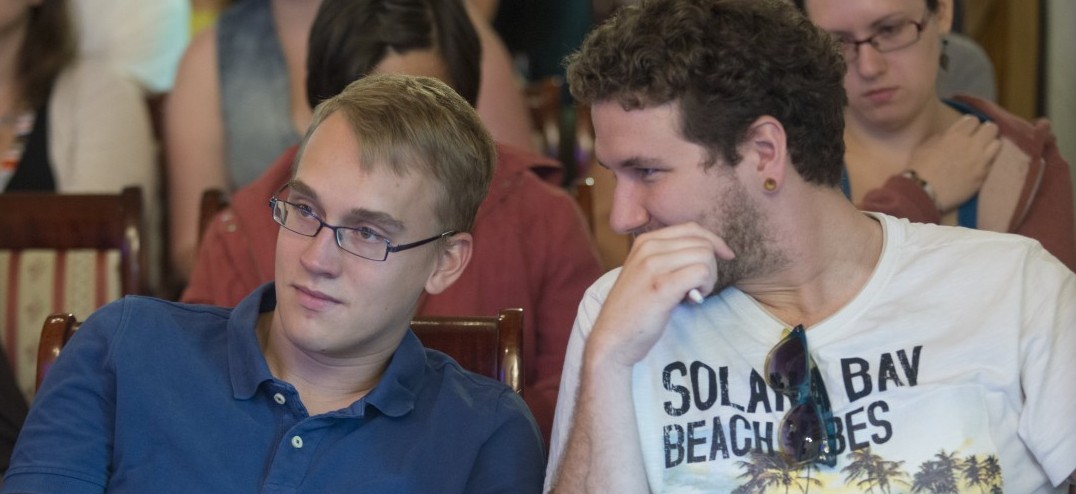
The tenth Day of 12. Visegrad Summer School was devoted to art and culture.
It was initiated by the lecture of Anna Lengyel, delivered via Skype from Budapest. After a critical introduction to the current problems of the Hungarian society and politics which are downplayed in the public discourse. This mainly concern the Roma minority. Afterwards she presented some works and outcomes of her artistic – or public activity. Her recent project is PanoDrama. That is a documentary theatre that tries to tackle some of the abovementioned socio-political predicaments by engaging the excluded voices into the debate. As long the media does not create a space for quality debate the theatre reveals as the only place to discuss the complicated problems as they are not as they are narrated by the corrupted or politically correct and obedient broadcasters.
Nevertheless Anna Lengyel’s lecture raised some controversies. To Noémi Girst from Hungary it was too harsh. As she said, the problems obviously exist but the way Anna Lengyel described them is exaggerated and sometimes a bit prejudiced.
After that Zuzana Husárová and Piotr Marecki gave a lecture on digital literature in the Visegrad Group states. The topic is thoroughly interesting. As long the media evolves dynamically, also the way stories are told ought to change. Digital literature aims at reviewing many traditional paradigms. No longer book is a stable media that confines a story in a sequential order. Digital book is more like an interactive game that involves the reader. It is intermedial (includes music, visuals, etc.), multisequential, collaborative, hypertextual or even kinetic and demands a new way of reading. Of course, it’s still rather an academic experiment. Nevertheless, it’s hard to imagine than the new technologies would not affect the traditional literature. The less imaginable it is due to their dynamic influx into the diverse fields of life – be it music, film or politics. But that’s the topic of the next day of the 12. Visegrad Summer School.
But before that - in the evening participants took part in Visegrad film marathon in one of the cosy cinemas of Kraków. The main idea of the event was to show films: either documentaries and animations from all Visegrad 4 states. They were diverse – both facing difficult social problems and joyful comedies – like the Hungarian witty and careless story on two Transylvanian merchants’ adventures that include selling German shepherd from Romania in Egypt. Indeed, the Central and Eastern Europe hide many stories.
Ziemowit Jóźwik












